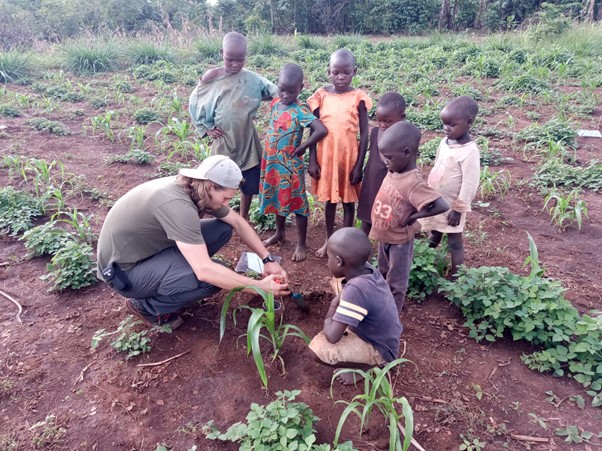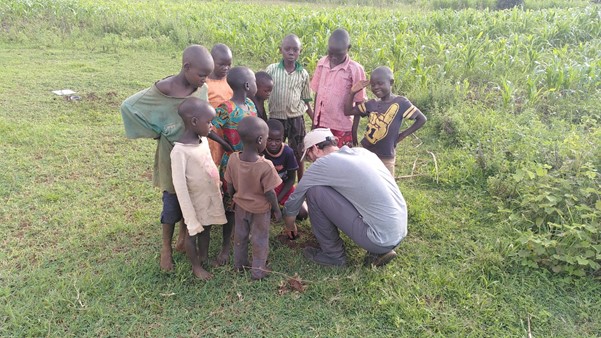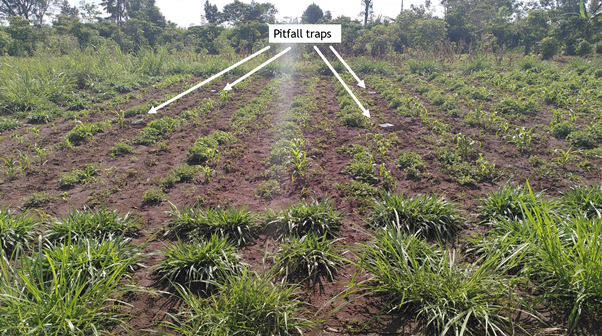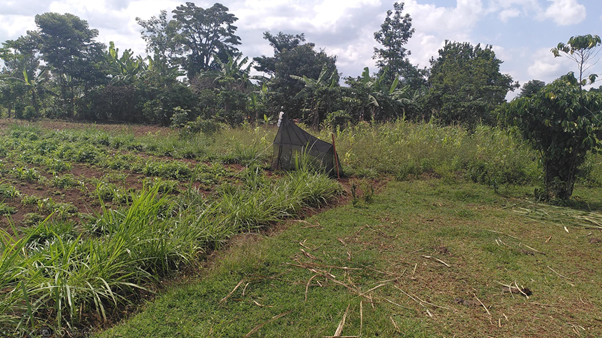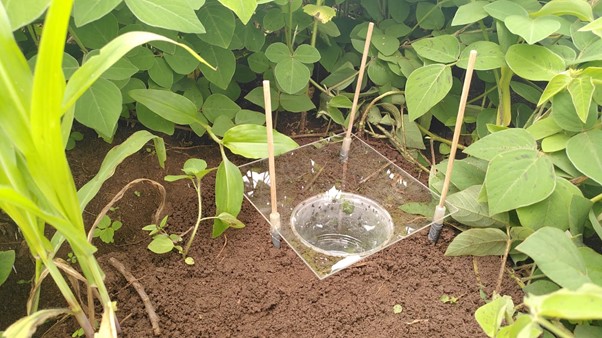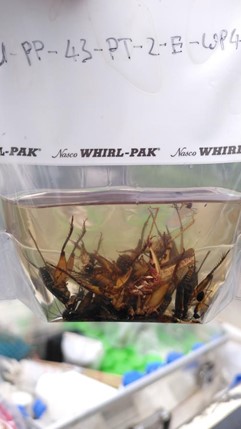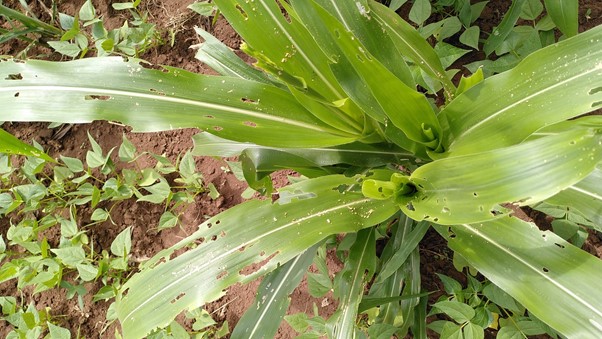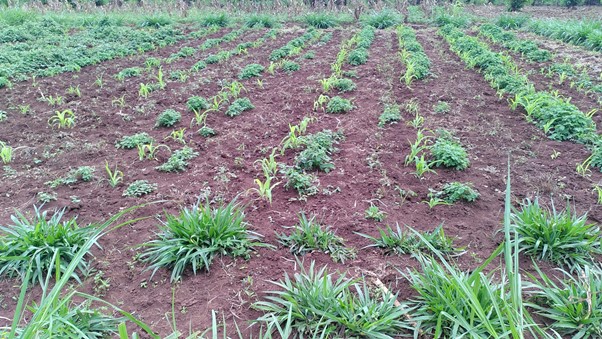In the period of September 13th, 2021 to October 5th, 2021 in and around Kamuli district, in the North-East of Central Uganda, UPSCALE team consisting of David Meinhof, Adomas Liepa, Dr Insa Otte conducted first field trials of ecological investigations on Push-Pull (PP) fields as well as to explore on-site conditions in contrast to satellite imagery.
During the first days, the team visited the research facility of NARO (local coordinator) in Kampala obtaining the first insights for their research work, mainly related to the potential of the PP technique to combat the pests found in these regions as an alternative to traditional pesticide usage. For the ecological investigations a subsample of various insect traps, such as Malaise and Pitfall traps were installed. In addition, Sweep-netting and leaf damage analysis was conducted and every pre-selected PP and non-PP field sites to carry out the ground-truthing questionnaire were visited. In doing so, the team obtained first-hand experience with the conditions on the ground, farming practices and familiarising with the farmers and families by the help of local guides and translators.
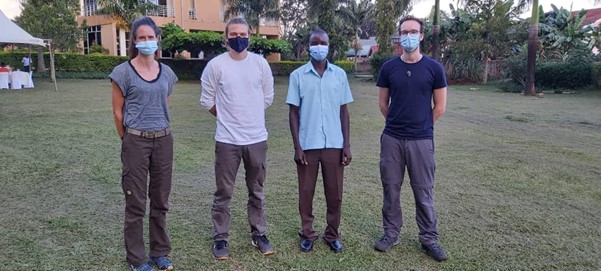 From left to right: Dr Insa Otte, David Meinhof, Dr Michael Otim (National Coordinator NARO), Adomas Liepa
From left to right: Dr Insa Otte, David Meinhof, Dr Michael Otim (National Coordinator NARO), Adomas LiepaFitting into overall framework of UPSCALE
This fieldwork is part of the ecological investigations of the UPSCALE project to gain insight in how the dissemination of PP-fields effect insect biodiversity. It is important to investigate the consequences of this new approach on the environmental scale in case of natural habitats and agricultural land. Work undertaken in these field visits has an aim of adding the contribution to realisation of the UPSCALE project targets, working towards expanding its scope and applicability. The field campaign made it much clearer how important such new, adaptive techniques are in addressing food security and how crucial the multi-disciplinary and multi-actor collaborations are.
Next steps
The team could experience the value of teamwork between foreign and local researchers, students, farmers and guides every day. This initial fieldtrip was the starting point of numerous future field campaigns throughout all 5 partner countries in East-Africa and was the first in-person collaboration between European and East-African research partners within the UPSCALE project since the beginning of COVID-19 pandemic. The next upcoming fieldtrips will be from German and Swedish university researchers to Kenya and Rwanda for more try-outs. In the beginning of 2022, there will be longer fieldtrips again from to Uganda and from more European partners to at least four of the partner countries in East-Africa. Within these, the first full samplings will be carried out for several months and the collected data will be evaluated for further research.
